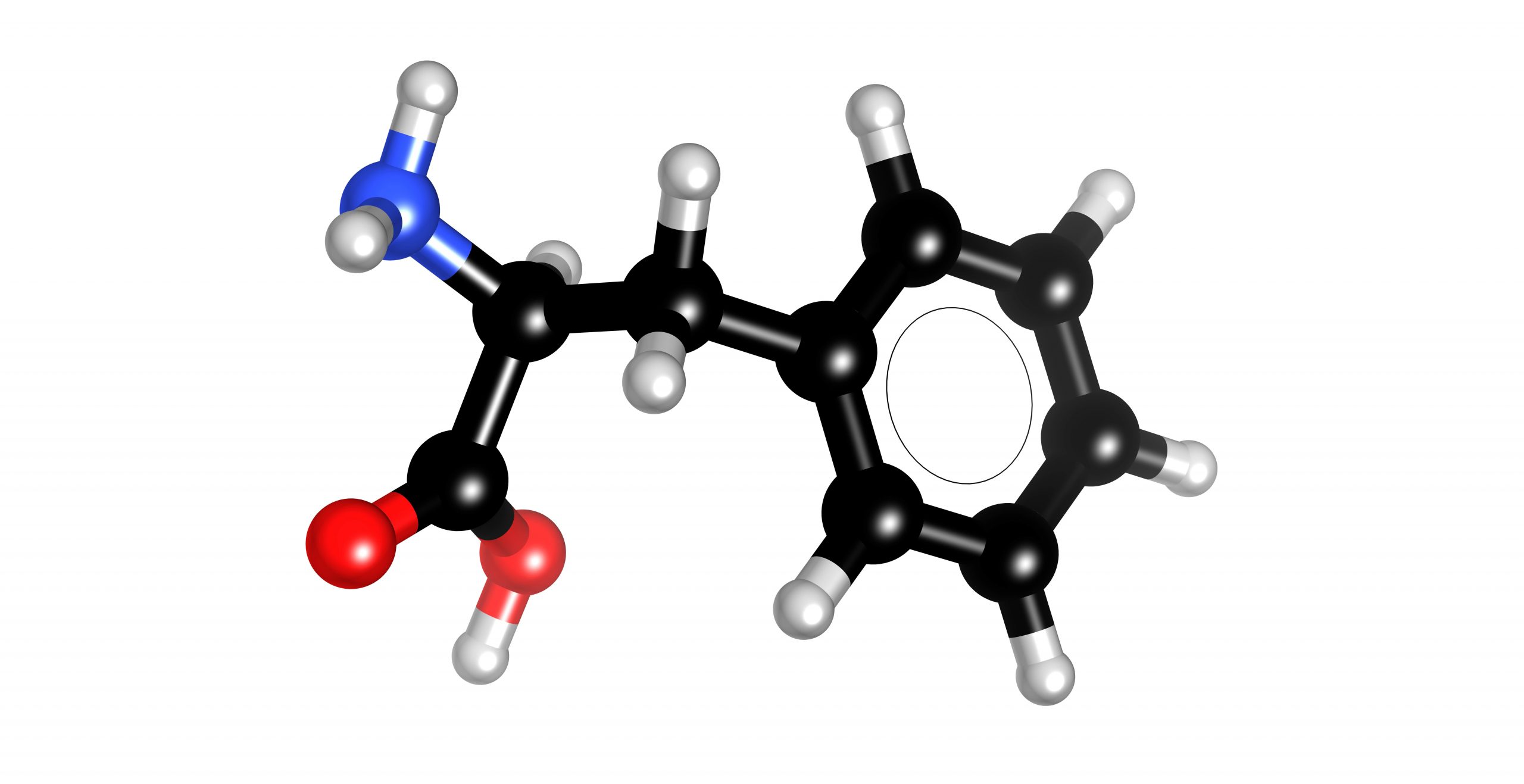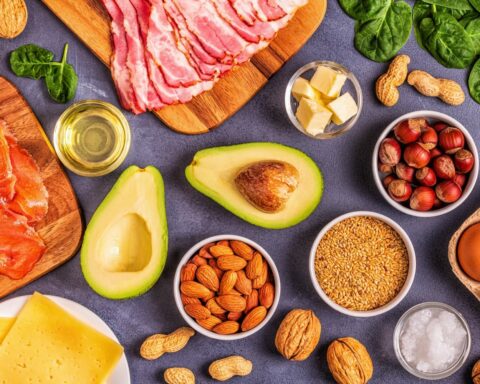Phenylalanineis important for the production of proteins and other essential molecules in your body.
One of the amino acids available in different types of food is phenylalanine. It comes in two main forms which are almost identical but differ in their molecular composition. You can obtain this amino acid from foods since your body doesn’t produce enough of it. Moreover, there are ongoing studies to discover some of its effects on certain conditions such as depression and skin disorders. However, what exactly is it, and what benefits does it have on your body? To discover more on phenylalanine, from where to source, its benefits, side effects, to the potential risks, keep on reading.
What is Phenylalanine?
Phenylalanine is an amino acid that helps your body produce proteins. It is required for your body to function normally. Moreover, several studies on phenylalanine suggest that it can help treat conditions such as chronic pain and skin disorders such as vitiligo and depression. However, not so many people have embraced it or accepted it for treatment yet.
Phenylalanine exists in two major forms as supplements; D-phenylalanine and L-phenylalanine. These two differ in their molecular structure.
D-phenylalanine can be used in medical applications after its synthesis. On the other hand, L-phenylalanine is obtained from your diet since your body can’t produce enough. Therefore, you can find it in various plant and animal foods. The L-phenylalanine has a major roleas it helps in the production of proteins. Nonetheless, it assists in manufacturing other molecules in your body.
In addition to the two major forms, DL-phenylalanine is a combination of both D- and L-forms.
Therefore, phenylalanine is essential for the production of proteins in your body. Moreover, it helps produce the following molecules;
- Tyrosine; is an amino acid that helps make new proteins.
- Dopamine; is a molecule responsible for pleasurable feelings in your brain, developing skills necessary for learning and memories.
- Epinephrine and norepinephrine; are the molecules that help your body counteract stress.
Therefore, you need phenylalanine to ensure the above molecules and amino acids function properly. If not, you may face adverse health effects.
Phenylalanine Foods
Having discovered the importance of phenylalanine to your body, how about you find out some of the foods from which you can source it? The good news is, most foods containing proteins have this amino acid. Such include;
- Eggs
- Fish
- Chicken
- Tofu
- Whole grains
- Pork
- Beef
- Cheese
- Soybeans
- Aspartame, an artificial sweetener that is added to medications and diet foods and sodas.
Other than these food products, you can source phenylalanine in the form of a dietary supplement.
The Benefits
Phenylalanine has some benefits that you might have once you consume it. Numerous studies have been conducted to check the potential effects of this amino acid on some specific medical conditions.
The following are some of the benefits you might experience when you consume phenylalanine in natural foods or supplements;
May help treat vitiligo.
Research indicates that phenylalanine can help treat this skin condition that loses your skin color. According to some studies, when you add a few supplements of this amino acid and expose yourself to UV light, you can help improve your skin pigmentation if you suffer from vitiligo.
May help with depression
As you have noticed, phenylalanine is good for producing dopamine, a molecule that is responsible for the sensation of pleasure in your brain. A lack or malfunction f dopamine might lead to depression. Therefore, when you take phenylalanine, you increase your dopamine levels and, in turn, prevent depression.
However, there is not enough evidence to support the effect of phenylalanine on depression.
May help relieve pain
Some studies suggest that there are cases where D-phenylalanine may help relieve pain. However, some studies have contrasting ideas on the same. Therefore, as much as the results are promising, there is more to be done.
May help treat Parkinson’s disease
It is suggested that an intake of phenylalanine can help patients with Parkinson’s disease. However, there is a need for more studies to reach a conclusive idea. For now, the limited evidence can still be used by these patients to try to treat their condition.
May help treat ADHD
There are a few studies that show phenylalanine may help treat attention deficit-hyperactivity disorder. This is linked to the idea that these patients have lower levels of amino acids. Phenylalanine is an example of amino acids; therefore, it is hoped that when it is given to ADHD patients, it can help treat the condition. However, it might not be as effective as you would expect.
This, therefore, shows that more studies and research should be done to determine how effective this amino acid is in treating ADHD.
Risks and Side Effects
Generally, phenylalanine is considered safe. Healthy individuals should therefore not be worried much about potential risks. However, as much as there are speculated benefits of this amino acid on your body, some have reported experiencing side effects having consumed it. Some of these include;
- Fatigue
- Heartburn
- Constipation
- Dizziness
- Nausea
- Sedation
- Headache
- Difficulty sleeping
Other than these side effects, phenylalanine might trigger certain allergic reactions in individuals. Some of the symptoms could be itchiness, breathing difficulties, tingling sensation in the mouth, and having a swollen face or hands.
Furthermore, if you take a higher dose of phenylalaninehigher than 5000mg daily, it might damage your nerves.
Moreover, individuals with the following conditions should avoid phenylalanine supplements;
- People with schizophrenia. If they keep using it, they might develop a movement disorder, tardive dyskinesia.
- People with phenylalanine sensitivity.
- Conditions like phenylketonuria.
Additionally, individuals with high blood pressure, anxiety disorders, and difficulty sleeping should always be cautious when using phenylalanine. If you take high blood pressure drugs, it might prevent them from functioning properly.
Therefore, since phenylalanine might affect the drugs you could be under, ensure you always inform your doctor if you ever want to take the supplements. This way, they will advise you accordingly depending on your condition, whether you have an underlying ailment or not.
Conclusion
Phenylalanine is an amino acid commonly found in protein foods and can also be obtained from supplements. D-form, L-form, and a combination of the two, D-from, are three forms of this amino acid. Moreover, its use is generally safe. However, it might have some side effects on users and might pose potential risks for individuals with certain health conditions or those under certain medication. Therefore, ensure you talk to your medical provider first before taking the supplements.
- Our Big Kitchen’ (OBK) is a non-profit organization located in Sydney, Australia - April 10, 2023
- Duos CBD, a hemp product E-commerce website - April 10, 2023
- SOFA SPOONING SEX POSITION - April 7, 2023









